This reaction essay is part of the Brookings project — “The One Percent Problem: Muslims in the West and the Rise of the New Populists.” We asked each author to reflect on how reading the other working papers helped them think differently about their own country of focus.
As I compared the other country cases to the situation in France, a couple of things stood out to me. They primarily concern the question of religion in the public consciousness. The first is that France’s relationship to religion shapes all parties and their relationship to Islam in ways that are truly unique. Two of the case studies are particularly useful as comparisons here: Italy and the Netherlands.
Italy, with its presence of populists on both the right and the left offers up an interesting mirror. France too, has a populist party on the left, La France Insoumise (France Unbowed), led by the mercurial Jean Luc Mélenchon. France Insoumise rose to dizzying heights in the run up to the previous presidential election in 2017 but struggled in the aftermath, in part due to Mélenchon’s overbearing personality. France Insoumise is still alive and well, however, as the most radical left option in the French political landscape and it would be a mistake to write them off. What’s interesting about them is that, while not wild about mass immigration — which they associate with a neo-liberal, global project — there is very little anti-migrant rhetoric and no anti-Muslim rhetoric. As true populists, they mainly blame political elites in general, and the incumbents specifically, as well as the EU for poorly regulating migration flows. Further, as a party of the radical left, they blame capitalists for profiteering from mass migration and the resulting low wages.
It is also worth noting that in the context of the coronavirus pandemic, “sovereignists,”among which Mélenchon can be included, have once again taken center-stage — blaming globalization for an unsustainable political, economic, and social order that treats human beings as commodities. Mélenchon’s anti-EU stance has been reinforced by this — much as many in Italy’s Five Star Movement mobilized in May 2020 against the legalization of illegal migrants working in the agricultural sector.
As a French party on the Left, they are even more averse to any hint of religiosity, and especially so in the public realm. One might say that, as good French secularists, they are “equal opportunity” religion bashers – not specifically against Islam, but no more in favor either. In one 2017 television debate, Mélenchon tore into Marine Le Pen who was busy accusing Muslims for various ills. “Oh enough with you and your religion. Just leave it out,” he bellowed in anger. This was a telling moment crystallizing one of the differences between the two populist parties, one on the left and one on the right. While Le Pen’s National Front (now National Rally) was comfortable taking on Islam specifically and emphasizing France’s “cultural heritage,” France Insoumise wanted no references to religion of any kind. Populists on the left and the right in Italy are, on the contrary, shaped far more by the centrality of Catholicism (and the Vatican) in Italian political culture as Manuela Caiani rightly points out. French populists are all actors on the stage of French Republican secularism (laïcité) and all parties in France, populist or not, must contend with that. In the case of the populist left they are doubly uncomfortable with the mere mention of religion or even of religious difference. In the case of the populist right, it means they easily and readily resort to anti-Islam arguments, in the guise of abiding by the Republican ethos.
This is where the second comparison with the Netherlands becomes particularly interesting. Indeed, right-wing populist leader Geert Wilders’ stance, as outlined by Koen Damhuis, is relatively close to Marine Le Pen’s. The French political landscape and its statist tradition make Le Pen’s National Rally an unlikely candidate for vociferous references to classical liberalism such as those formulated by Wilders (Liberalism is a poorly understood tradition in France, often simplistically reduced to rabid individualism and unregulated market forces), but the secular ethos of the Republic makes for a good stand-in. This works particularly well as a sleight of hand for Marine Le Pen whose attacks on Islam, much like Wilders’, have tended in recent years to be couched in the defense of women and of choice (in religious, cultural and even health terms around abortion), casting Islam as backward and culturally at odds with Western and European values. Wilders frames his stance against the backdrop of the Dutch tradition of liberalism and transparency; Le Pen frames hers against the backdrop of the Republican secular tradition.1 But both end up using similar rhetoric. One explanation is that religion was the structuring logic—however differently—in the two countries. In the Netherlands, it was the explicit framework through which to handle divergence and compromise (through pillarized consociational democracy). In France, it was the force against which to rebel and structure the Republic.
The second striking aspect of the various country cases is that they tend to highlight key differences in the experiences of migration and immigration. Places like France and the Netherlands have a long tradition — rooted in colonialism — of migrant populations settling on their soil. Italy and Hungary, meanwhile, have a completely different relationship to both religion and immigration. For the first set of countries this means that their populists have to exist within party systems that have evolved around these issues. Though ethnic and cultural differences, integration, and belonging may have been discussed in different ways and adapted to different institutional imperatives, they have consistently been part of the political discussion for decades.
On the other hand, Italians, as highlighted by Caiani, came late to the issue of immigration, having long been associated with the very opposite: emigration. This belated but acutely polarizing acquaintance with immigration emerged in the context of a) EU membership and b) a sharp north-south political and economic divide which had traditionally been a primary cleavage for right-wing populist groups, such as the League The League had an opportunity to point to the EU as having abandoned Italy in the management of migration (and not just in 2015 but long before). Simultaneously, it could point to the South’s mismanagement and helplessness in the face of immigration. This means in part that the tone and rhetoric of the League is far more anti-immigrant (as scroungers and an economic drain on Italian cities) than it is properly anti-Islam. There is plenty of anti-Islam rhetoric, of course, but far more generically anti-immigrant rhetoric. Another reason for this is that the religious aspect is more complicated in the context of Italy’s Catholicism and the role, in particular, of the current pope. Pope Francis has prioritized dialogue with Muslim leaders and clerics and has spoken out against associating Islam with violence. Above all, he has publicly castigated Salvini and appealed directly to Italian decency and morality when Salvini refused to let migrant ships dock.
Perhaps it would be more accurate to say that the French context has ideologized Islam.
In France, the debate around Islam is so bound up with the legacy of colonialism, and of the Algerian War, which has contributed to its politicization. Perhaps it would be more accurate to say that the French context has ideologized Islam (in part because the legal status of Muslims was a major issue in France during, and in the immediate aftermath of, the colonial period), whereas in Italy, it is migration that has been ideologized– because it both reflects and reinforces existing disparities and deep cultural and political divisions between north and south.
Two final things are worth noting regarding party systems. First, in many countries, the rise of the populists coincides with a major decline of social democratic parties. The transformation of such parties into middle-class, socially liberal hubs means that the void left for the working class was filled by populists and often by the populist right. Right-wing populists are more capable of providing clear answers to questions of identity, belonging, and security than left- wing populists intent on extoling the virtues of transnationalism and global citizenship. The fact that social democrats have not, so far, been able to formulate a stance that is both egalitarian and protective of minorities is a key factor behind the success of right-wing populist parties France is no exception; though social democrats were in power in a number of EU countries and most notably Germany in the 1990s, their stars have tended to fade, sometimes quite dramatically.
Second, a significant point made in the paper on Germany is the nature of the mainstream right and its relationship to the populist right. The fact that the Bavarian Christian Social Union (sister party to the governing Christian Democratic Union) is more traditionally conservative than the CDU but also determined to move no further right (indeed attempts by their leader Seehoffer in 2019 met with failure) offers an escape valve for those German voters seeking a more explicitly and unapologetically conservative option. The CSU’s ability to cover its right flank is perhaps (perhaps!) a guarantee against the further expansion of the AfD. Were other parties in Europe able to achieve this kind of “ideological range” — the old-fashioned broad church of the catch-all party, even as dysfunctional as Berlusconi’s Forza Italia — this would likely limit the prospects for right-wing populists.
-
Footnotes
- There are differences between Marine Le Pen’s views on abortion and those of the harder, more identitarian edge of the Front National (represented in part by her niece Marion Maréchal Le Pen). The party evolved on these issues, breaking in 2012 – via Marine – with the FN’s more traditional views in an attempt to modernize the party. While the Marine vs. Marion debate is real (especially around issues of gender and family), it should also be seen as a continuation of what has always been a tension in the FN, which originally had a strong conservative component that has been steadily eroded, as it has been across French society. The FN, early on, allowed for the representation of such views, without making them central. And it continues to do so now. The arguments between Marine and her niece serve in part to highlight the party’s internal “tolerance” toward a diversity of views.
The Brookings Institution is committed to quality, independence, and impact.
We are supported by a diverse array of funders. In line with our values and policies, each Brookings publication represents the sole views of its author(s).
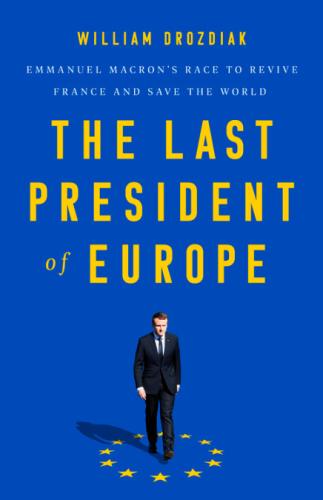
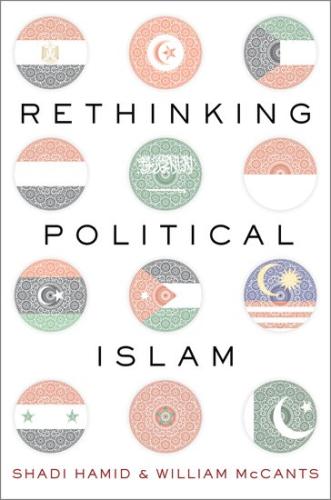
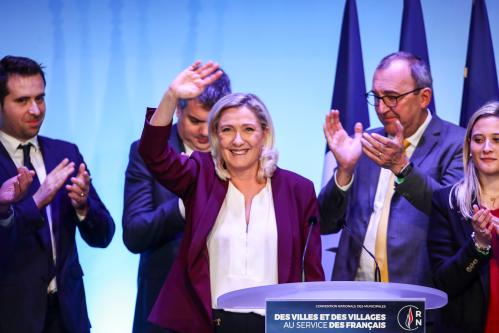
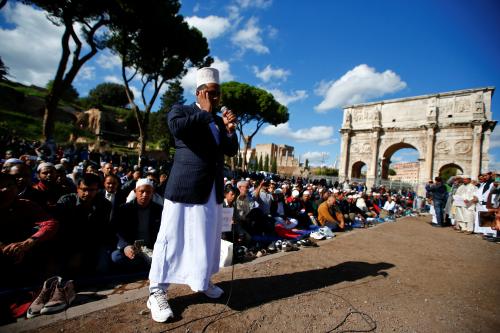
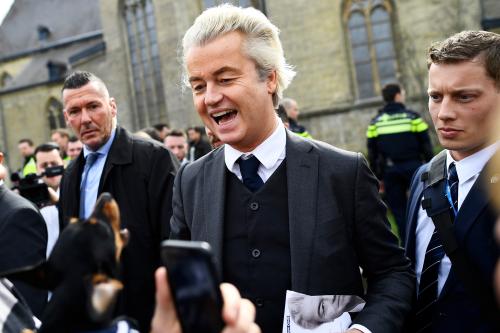
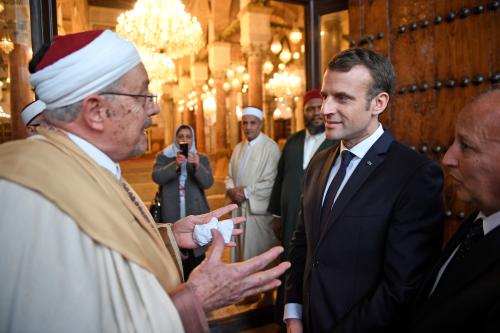
Commentary
How religious legacies shape public debates over Muslim immigration
June 16, 2020